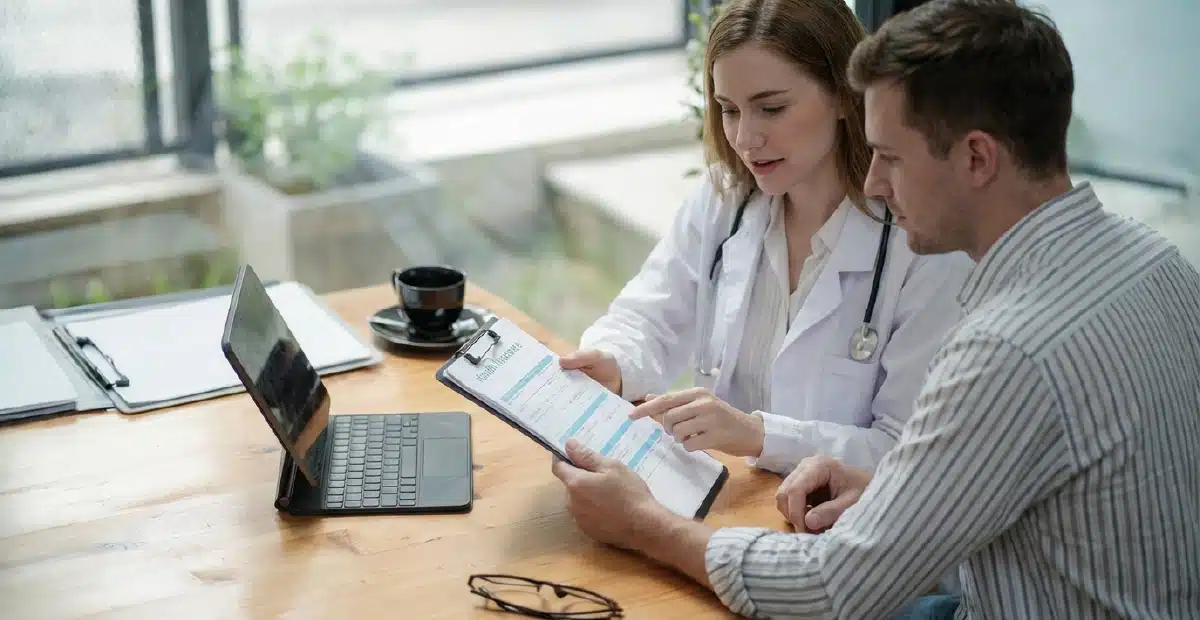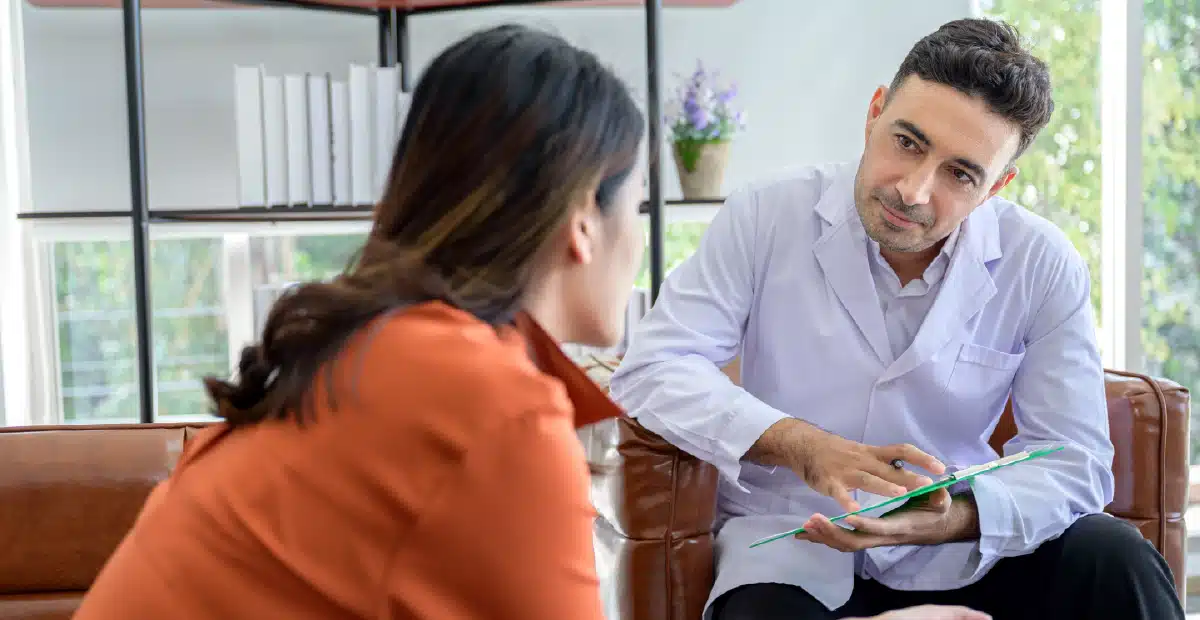Partial Hospitalization Programs (PHP) are an important option for those seeking treatment for substance abuse and mental health treatment. It involves individual, group, and family therapy during the day, while PHP clients live in supportive housing. Read on to learn more about this important level of care.
What Is a Partial Hospitalization Program?
A bridge between two levels of care, PHP is a step-down from residential inpatient treatment and a step-up from an Intensive Outpatient Program (IOP). Those with moderate to severe mental health conditions, substance use issues, or transitioning from residential care are ideal candidates for PHP.
Key Benefits of Choosing a PHP for Treatment
PHP provides intensive support on a daily basis and is the highest level of care after residential. For those needing structure and ongoing care, while living in supportive housing, PHP offers several benefits. Of these, its cost-effectiveness compared to residential treatment stands out.
Patients can practice their independence in PHP while continuing to develop skills acquired during residential treatment, if they attended that level of care. Therapies offered are similar to those provided in residential care, but within a more flexible program.
Intensive Care Without Full Hospitalization
While living in supportive housing, patients experience intensive care. This involves:
- Scheduling: 6+ hours per day, 5 to 6 days per week. This includes therapy, psychoeducation, and life skills training.
- MAT (Medication-assisted treatment): For managing withdrawal and cravings, as appropriate.
- Co-occurring disorders: Treating dual diagnosis of substance use, depression, anxiety, and PTSD.
- Accountability: Drug testing, individual counseling, and group therapy.
- Peer mentoring: Reduces social isolation and reinforces recovery with peer support.
Personalized Therapy and Treatment Plans
Therapies and counseling offered in PHP include:
Cognitive Behavioral Therapy (CBT): This is an evidence-based, goal-oriented, short-term psychotherapy focused on changing negative thought patterns and behaviors. By teaching coping strategies, it helps treat anxiety, depression, and stress. CBT emphasizes self-awareness, problem-solving, and skill-building for long-term mental wellness.
Eye Movement Desensitization and Reprocessing Therapy (EMDR): Used to treat trauma and PTSD, this form of psychotherapy uses guided eye movements. While recalling distressing memories, it helps the brain reprocess them. Also effective for anxiety, phobias, and emotional distress, EMDR reduces the impact of traumatic experiences, promoting healing without extensive talk therapy.
Relapse Prevention: Patients identify triggers to relapse in counseling and develop coping skills before transitioning to intensive outpatient care or home. In daily life, whether at work or with family, patients practice skills for sobriety.
Smooth Transition Between Inpatient and Outpatient Care
PHP offers structure and safety, important elements of care especially for those experiencing substance abuse and transitioning from residential care. Similarly, for those transitioning from IOP, PHP offers more structure to help guide recovery.
How a PHP Works in Orange County
While patients transition to daily life, PHP helps patients stabilize, participate in therapy, and learn new skills. While it varies with the program, typically there are 5-6 hours of therapy daily, 5 to 7 days per week. Substance use disorder is treated, and mental health conditions such as depression, anxiety, PTSD, and bipolar disorder, among others. PHP combines a structured mix of individual, group, and family therapy, medical care, and skill-building sessions.
Typical PHP Daily Schedule and Activities
Typically PHP programs run from Monday to Friday. Some offer evenings and weekend options.
Morning Session
8:30 am – 9:00 am: Check-in Group, Review goals and challenges. State intentions.
9:00 am – 10:30 am: Group Therapy: coping skills, relapse prevention
10:30 am – 10:45 am: Break.
Midday Session
10:45 am – 12:15 pm: Group Therapy on various topics
12:15 pm – 1:00 pm: Lunch Break
Afternoon Session
1:00 pm – 2:30 pm: Psychoeducational Group or Experiential Activities
Anger management, life skills training, or art or music therapy
2:30 pm – 3:30 pm: Individual Therapy
Sessions with a therapist or psychiatrist (medication management if needed).
3:30 pm – 4:00 pm: Reflection Group
Consider progress, challenges, and plans for the evening
Optional PHP Components include random drug testing (for addiction treatment), Family Therapy Sessions (weekly), 12-Step or Alternative Peer Support Meetings, Mindfulness/Meditation Practices
PHP for Mental Health vs. Addiction Recovery
PHP for mental health focuses on intensive therapy (CBT, DBT, group sessions) for conditions like depression or bipolar disorder, with structured daily support.
PHP for addiction recovery emphasizes relapse prevention, sobriety skills, and 12-step integration, often including detox support and dual diagnosis care. Both provide step-down stability.
Choosing the Right PHP Program in Orange County
It’s important to find a PHP with a comprehensive program including for those with dual diagnosis.
Accreditation and Clinical Staff
Look for an addiction center that is fully accredited, such as by the Joint Commission or CARF. This ensures the quality of programming, licensed staff, facilities, and amenities is appropriate.
Why Northbound Treatment Is a Top Choice
Northbound offers a comprehensive suite of services in its PHP. As long as patients make strides forward in their recovery and maintain their sobriety, they can eventually step down to a lower level of care and experience more independence and responsibilities, usually in the form of an outpatient program. Thus, a Partial Hospitalization Program provides a crucial step toward continued healing and sobriety.
Drug Rehab in Southern California
For more than 30 years, Northbound Treatment Services in California has been at the forefront of providing lifesaving, compassionate residential care, and specialized services to help people from all walks of life feel better, discover themselves, and live free from addiction. We have facilities throughout California. Reach out to our admissions team now.

Author
-

Chief Marketing Officer
Alexa Pelech is the Chief Marketing Officer at Northbound Treatment Services, where she combines her passion for helping others with a strong track record in addiction treatment marketing and outreach. Since joining Northbound in 2019, Alexa has held several key roles—including Referral Relations Manager and Director of Business Development—before stepping into her current leadership position in March 2023.Alexa began her career in behavioral healthcare as an Outreach Coordinator with American Addiction Centers, where she quickly developed a reputation for her compassionate approach and results-driven mindset. Today, she leads Northbound’s marketing strategy with the same energy and heart, driving growth while staying true to the mission of recovery.
Alexa holds a Bachelor of Arts in Fine and Studio Arts from San Francisco State University and later studied Substance Abuse and Addiction Counseling at Los Angeles Pierce College. Her creative background and commitment to service continue to shape her authentic, human-centered leadership style.










